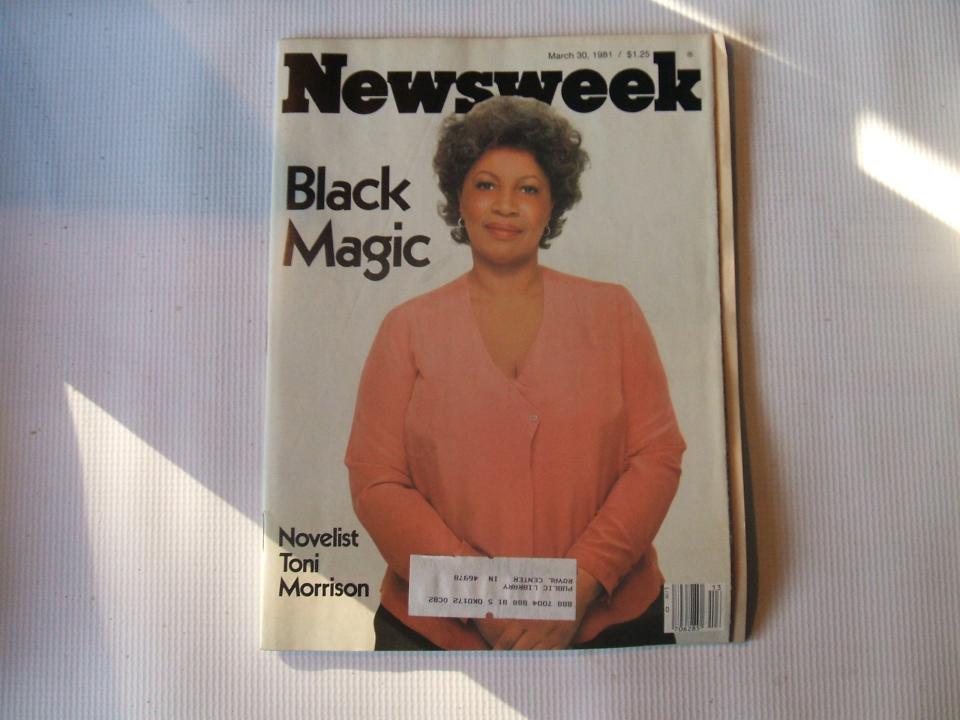How Toni Morrison Brought the Black Female Gaze to Hollywood

Click here to read the full article.
“If you surrendered to the air, you could ride it”- Song of Solomon from Toni Morrison our Beloved
If you are a Black woman who reads, you carry with you a quote by Toni Morrison that has done the work of saving your life, making you feel whole and seen. Yet, we have no visual representation, film or television adaptation, that truly captures all that she means to us – to the world.
More from IndieWire
'Toni Morrison: The Pieces I Am' Director on the Late Author's 'Monumental' Legacy
John Waters Picks Terence Davies' 'The Deep Blue Sea' As The Best Film Of 2012
This morning, I awoke to the news of her death and as I’ve been toiling away on my own film and TV work, I had to come out of the woodshed to write about one of the greatest writing influences of my life. Ms. Morrison ticks all of the boxes. She tightened and strengthened my backbone so that I could face the world, bravely, in my darker skin. I can’t name another author that delighted in the sultry depth and triumph of Black women. In her work, I see my aunts, my mom, my nieces, my besties, all Black women who pass me on the street, rising to meet the air with their gait.
When I first secured representation in Hollywood, I told my rep that I wanted to be on board for any adaptation of Toni Morrison’s work. I was immediately informed that after “Beloved,” Ms. Morrison did not want anyone to adapt her work while she was alive. Whether fabled or rumored, I understood. What Black woman writer or director in Hollywood, at that time, had the cache to get the project greenlit? Ms. Oprah Winfrey, rightfully so, was determined to bring “Beloved” to the big screen. The difficulty: this was during a time in Hollywood where Black creatives didn’t have much clout.
To give context for that time in Hollywood, 1998, refer to the recent NYTimes article: “They Set Us Up To Fail: Black Directors of the 90’s Speak Out.” The environment was discriminatory and hostile for Black creatives. Bringing “Beloved” to the big screen was a bold step for Ms. Winfrey. To bring a Black literary titan, who most Americans weren’t aware of, to the big screen, was a risk.
The Hollywood narrative on slavery is typically male-centered. Ms. Winfrey brought the Black female gaze, Toni Morrison’s gaze, to slavery – which is layered, as motherhood, sexuality and domestic choices reveal the brutality of the experience. Empathy to Black women would be required of the viewer, but Americans were not ready to offer such empathy. Perhaps the failure was in the decision to not have a Black woman direct this uniquely traumatic experience.
The literary world praises male authors for the “magic” or “magical realism” in their work. Often, Ms. Morrison is praised for the extraordinary lives of her characters, but the magic and transcendence in her novels aren’t sufficiently lifted. “Song of Solomon” has a magical realism so central to the narrative that it floats by a reader and situates as normal. Creatives of any stripe must read Ms. Morrison to learn how to make magic central to the lives of their characters. The Newsweek cover from March 30, 1981, features Ms. Morrison along with the words, “Black Magic.” In this era of “Black Girl Magic,” Ms. Morrison was our foremother.

So, here we are, Hollywood today. We have choices as to who gets to tell what stories. This is, in no small part, due to Ms. Morrison herself. The videos circulating of her interviews with Charlie Rose have propelled forward a generation of Black creatives who gained courage from her fearlessness. Ms. Morrison had a clarity, and an unwavering belief that Black people were and are the brilliance that America denies. More importantly, she helped us know that we don’t need anything to be whole, but America needs us if it is ever to breathe and outrun it’s crippling past.
There are no words that can properly eulogize Ms. Morrison. My only hope is that, should her work ever be adapted again, this time, Black creatives will be in front of, and behind the camera, making the decisions to bring her imagination to the big or small screens. After all, we Black creatives are her children, we are indebted to her, and we are here to carry on her truth.
Rest with the angels, Ms. Morrison. Thank you for all of it; your fortitude, your scars, your courage and the mighty African-American dreamscape that you bequeathed us.
Tanya Steele earned her M.F.A. from NYU Grad Film and is an award-winning filmmaker and screenwriter currently in development on her feature film “The Parachute Factory” and her TV series “Rocket.” She is a former Crisis Intervention Counselor to victims of domestic violence, sexual abuse survivors and victims of violent crime.
Sign up for Indiewire's Newsletter. For the latest news, follow us on Facebook, Twitter, and Instagram.

